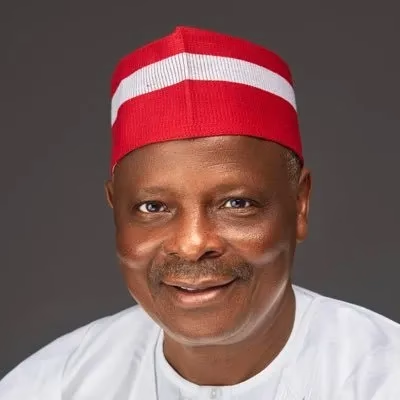Rabiu Kwankwaso is a Nigerian politician, former governor of Kano State, and a well-known political leader in northern Nigeria. He has served in different political positions, including as a senator. Many people admire him for his leadership style, strong political base, and influence in Kano politics.
Kwankwaso is also the founder of the Kwankwasiyya Movement, a political group that has gained popularity in Nigeria, especially among young people. His red cap has become a symbol of his movement, representing loyalty and political identity.
This blog post will cover everything about Rabiu Kwankwaso’s life, including his early years, education, career, family, net worth, and political journey.
Profile Summary
Full Name: Rabiu Musa Kwankwaso
Date of Birth: October 21, 1956
Age: 68 years old
Place of Birth: Madobi, Kano State, Nigeria
Nationality: Nigerian
Education: Middlesex University, UK
Occupation: Politician, Engineer
Political Party: New Nigeria Peoples Party (NNPP)
Spouse: Hafsat Rabiu Musa
Net Worth: $5.9 billion
Instagram: https://www.instagram.com/kwankwasorm/
Rabiu Kwankwaso Early Life and Background
Rabiu Musa Kwankwaso was born on October 21, 1956, in Madobi, a local government area in Kano State, Nigeria. He comes from a respected Fulani family that values education and leadership.
Growing up, Kwankwaso was influenced by the cultural and political environment of Kano State. His family had strong ties to traditional leadership, which helped him develop an interest in governance and public service from a young age.
Rabiu Kwankwaso is known for his signature red cap, which has become a symbol of the Kwankwasiyya Movement. The red cap represents loyalty, political struggle, and the fight for the common people. His supporters wear red caps to show their commitment to his vision and leadership.
This red cap has made Kwankwaso stand out in Nigerian politics, as it represents his strong political ideology and grassroots support.
Rabiu Kwankwaso attended Kwankwaso Primary School and later went to Wudil Craft School and Kano Technical College. He furthered his education at Kaduna Polytechnic, where he studied engineering.
Kwankwaso also traveled abroad for further studies. He attended Middlesex University in the United Kingdom, where he earned a postgraduate degree in water engineering. His education in engineering gave him a strong foundation in planning and administration, which later helped him in politics.
Throughout his career, Kwankwaso has emphasized the importance of education. As a governor, he invested heavily in the education sector, providing scholarships for students and building schools.
Rabiu Kwankwaso Career
Before joining politics, Kwankwaso worked as a water engineer. He started his career in the Kano State Water Resources Department, where he gained experience in public service and administration.
His background in engineering helped him understand infrastructure development, which later influenced his leadership style as a governor.
Political Career
Rabiu Kwankwaso officially joined politics in the early 1990s. His first major political position was when he was elected as a member of the House of Representatives in 1992. During this time, he represented Madobi Federal Constituency under the Social Democratic Party (SDP).
In 1999, he became the governor of Kano State under the Peoples Democratic Party (PDP). His first term as governor lasted from 1999 to 2003. During this time, he focused on education, healthcare, and infrastructure development.
After his first term, he was appointed as the Minister of Defence from 2003 to 2007 under President Olusegun Obasanjo. His role in the defense ministry helped him build national political connections.
Kwankwaso returned as the governor of Kano State in 2011. His second term was even more impactful, as he introduced more reforms in education, healthcare, and job creation. He also launched the Kwankwasiyya Movement, which gained massive support across northern Nigeria.
Presidential Ambitions
Rabiu Kwankwaso has always had ambitions for Nigeria’s presidency. He contested in the presidential primaries in 2015 under the All Progressives Congress (APC) but lost to Muhammadu Buhari.
In 2023, he contested for president under the New Nigeria Peoples Party (NNPP), a party he helped build. His campaign attracted many young supporters, but he did not win the election. However, his influence in Nigerian politics continues to grow.
Rabiu Kwankwaso Wife and Children
Rabiu Kwankwaso is married to Hafsat Rabiu Musa. They have children together, but he prefers to keep his family life private. Unlike some other politicians who frequently talk about their families in public, Kwankwaso focuses more on his political career and public service.
His family has always supported his political journey, and his children are involved in different professions.
Rabiu Kwankwaso Net Worth
Rabiu Kwankwaso is one of the wealthy politicians in Nigeria. His net worth is estimated to be $5.9 billion. His wealth comes from his political career, business investments, and salaries from the various positions he has held.
As a former governor and senator, he earned a good salary and allowances. He also has investments in different sectors, including real estate and agriculture. However, he is known for living a relatively modest lifestyle compared to some other Nigerian politicians.
Rabiu Kwankwaso State of Origin
Rabiu Kwankwaso is from Kano State, Nigeria. Kano is one of the most important states in northern Nigeria. It is known for its rich culture, strong political influence, and large population.
Kano has produced many top politicians in Nigeria, and Kwankwaso is one of the most influential leaders from the state. His strong political base in Kano has made him a major force in Nigerian politics.
Read more:
- Datti Baba-Ahmed Biography: Age, Politics, NetWorth
- Rotimi Amaechi Biography: Net Worth, Age, Wife, Children, Politics, State of Origin
Conclusion
Rabiu Kwankwaso is a politician, former governor, and leader who has played a major role in Nigerian politics. His journey from a young boy in Madobi to becoming one of the most influential politicians in northern Nigeria is inspiring.
His leadership style, political strategy, and focus on education have made him a respected figure in Nigeria. Even though he has not won the presidency, he continues to shape Nigerian politics, and many believe he still has a big role to play in the future.
